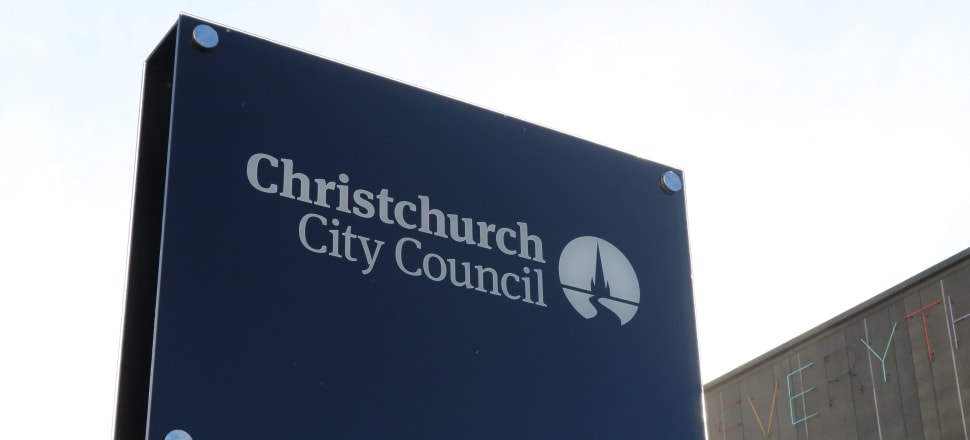
The South Island’s biggest council suffers a second straight poor survey result – this time from staff. David Williams reports
Late in 2020, rocked by Covid-19 disruptions and multiple restructures, morale among Christchurch City Council staff plummeted.
Workloads had increased because of a hiring freeze, and salaries were frozen for those on individual contracts.
Surveyed staff wanted higher pay and flexible working hours, as well as better leadership, and increased communication. There were allegations of bullying and harassment.
Only 19 percent of employees said they’d recommend the council as a place to work.
The council’s latest staff survey results have been released to Newsroom after an official information request, and many of the complaints are the same as the 2020 version. That begs the question: what has management learnt?
The council is an organisation under pressure, what with the stench from the city’s fire-damaged wastewater treatment plant, and a controversial cost-blowout for a new stadium.
Residents are also upset about getting chlorinated water, which is proving costly. However, the council is battling for an exemption.
Bundled together, these problems are taking a toll. In the latest residents’ survey, made public in June, the council got a dismal 42 percent approval rating.

About 1500 of roughly 2600 staff completed the most recent staff survey, between February 28 and March 18, using a system called Ask Your Team.
The poorest results were questions about pay – unsurprising during soaring inflation – with a third of staff saying remuneration was appropriate relative to the market. Meanwhile, only 37 percent thought poor staff performance was being managed well.
Other concerns centred on communication from the executive leadership team (ELT), headed by chief executive (CE) Dawn Baxendale, and the council’s poor reputation in the community.
One comment in the survey said individual managers were excellent but the council didn’t empower or listen to staff.
“The impression given is that the CE and ELT do not trust staff; resulting in senior leaders and managers getting involved in matters that should be carried out by competent staff at lower levels of the organisation and staff feeling disempowered/under-valued.”
Another staffer says much of their time is spent waiting on others who have not met deadlines, seemingly without consequences.
It’s not all gripes, however. Another comment read: “Generally I love working for council – I love working hard to make a difference to our citizens, their wellbeing and safety, and our environment and climate.”
Transparency within the organisation continues to be an issue. In a multi-choice section, 39 percent said “no” to whether the council was being “transparent and open with information inside the organisation”, while 37 percent answered “yes”.
Just two years ago, in June 2020, about half answered “yes” to that question.
In terms of external transparency, 42 percent of staff said, yes, it was being open with information outside the organisation, while a quarter answered “no”.
In late 2019, soon after Baxendale arrived, Chief Ombudsman Peter Boshier criticised the council’s leadership and culture after discovering top staff manipulated reports and kept negative information secret from the public and councillors.
The previous year, the council’s secrecy over the cost of a digital touch wall in its new library snowballed into a crisis, in which Boshier said he was referring the council to the Solicitor-General for non-compliance.
Last year, the council kept secret the details of a $100,000 report, suggesting major changes to achieve millions of dollars in savings, for nine months, robbing ratepayers of the chance to mull the proposals in annual plan submissions.
‘Disappointing but understandable’
In the survey, the top three factors staff said would make work more satisfying were: pay (57 percent), being recognised and valued (40 percent) and flexible working (38 percent).
On the plus side, two-thirds of surveyed staff thought the council was “open and accepting of individual differences”, although this had dropped from 86 percent in 2020.
Almost four in five staff indicated they understood how they did their job affected others in their team, while 70 percent of survey participants agreed the importance of citizens was a significant factor on their work, and thought their performance targets gelled with the council’s goals.
The Ask Your Team staff survey shows Christchurch lags other councils for overall score (56 percent in Christchurch compared to an industry benchmark of 64 percent), and participation rate (57 percent against a benchmark of 74 percent).
Because the survey tool has changed, a direct comparison isn’t possible for some questions – including the telling one of whether staff would recommend others work there.
Slides from a leaders’ forum held last month show the executive leadership team felt the results were “disappointing but understandable”, and a “starting point for action”.
Suggestions included reviewing the council’s approach to remuneration, and flexible working policy, as well as a re-think of “how we recognise more people more often and more meaningfully”.
Further work was need to reduce “bullying and harassment concerns”, the presentation noted.
In a statement, Baxendale said: “Some actions are already being advanced. I would expect to see progress in some areas by the end of the calendar year, and in other more complex matters, by the end of the financial year, June 2023. It is likely this will be a multi-year commitment.”
Union PSA represents hundreds of council staff. Last year, its member and the council agreed on a 1.5 percent pay increase.
PSA organiser Adrian Mealing says rampant inflation has converted that into an effective wage cut.
“Add a buoyant job market to the mix, and it is no surprise that working people are considering their options,” he says in a statement.
A “constructive process” with the council is expected to start soon.
“We encourage the council to prioritise job security and sustainability for their workforce, and budget for a much-needed pay rise for workers next year.”
Mayoral candidates weigh in
Asked if he was concerned by the survey results, mayoral candidate David Meates, the former district health board chief executive, said: “What it is absolutely highlighting is there’s an opportunity to help shift the way that the organisation is perceived both externally and internally.”
Councillors and the mayor need to set their expectations of the council and then hold the organisation to account, he says, while remaining positive and forward-focused – “as opposed to often attacking the organisation that they’re responsible for governing.”
Phil Mauger, a sitting councillor and mayoral candidate, says he hasn’t seen the staff survey results and therefore can’t comment.
In an emailed statement sent by a public relations firm, he says one of his campaign policies is regaining ratepayers’ trust.
“This will then have a flow-on effect and increase the morale of staff working for the council. I will lead and foster a can-do approach across council – we must lift our game and make sure our council is connected to our city.”
Information about the survey has been tightly controlled.
On May 30, the executive leadership team had a three-hour session with an Ask Your Team consultant to review the results. On June 10, the leadership team met to discuss an “initial action plan”, and three days later, unit heads were given access to the system to see their results.
A “heads of service presentation” was given on June 15, a copy of which has been provided to Newsroom.
“ELT are taking the results of this survey seriously and are committed to improvements,” the “reflections” section of the presentation says.
Staff were sent a summary of the survey results via email after June 15. A senior leaders’ forum discussed action on the survey on July 25.
In comments to Newsroom accompanying the official information release, chief executive Baxendale says there’s a desire for positive change.
“The majority of respondents genuinely enjoy working for the council and take a great sense of pride in doing so. The survey results have triggered a wide range of conversations about what we need to do to create a better environment for staff to fulfil their potential.”
The leadership team better hope there’s not an exodus like last year before the fixes are implemented. As Newsroom reported in June, 426 permanent employees left the council in 2021, which was 17.5 percent of all staff.







